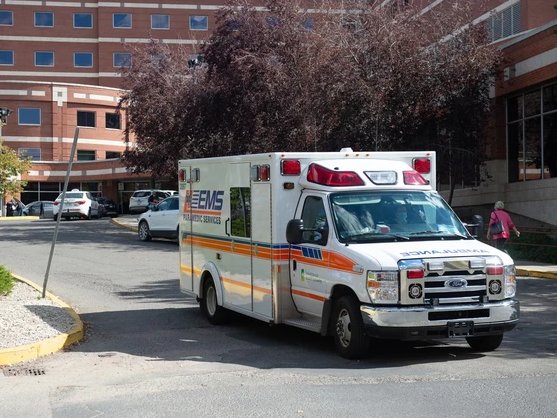
Set to begin in June, the pilot adds an RN to dispatch resources to help direct non-emergent patients to care other than an ambulance or emergency room.
Regina Leader-Post Staff
In an effort to improve lengthy wait times and off-load delays in emergency rooms, the province will test a new system designed to redirect non-emergent 911 calls from paramedics to alternative points of care.
A new triage support pilot is set to launch in Regina and Saskatoon this June, adding a registered nurse (RN) to dispatch resources who will help determine the most appropriate method of care for patients that could avoid a trip to the hospital.
The pilot will see patients deemed to be non-emergent by 911 dispatchers connected with the RN to advise on an alternative care option, instead of engaging an ambulance for response or transport.
Minister of Health Everett Hindley said the additional step will help “streamline services for our EMS providers” while still providing up-to-standard patient care for all in need of emergency medical services.
“We are grateful for the work done by our EMS providers, and we have heard from them the need to address pressures caused by unnecessary EMS transfers to hospital emergency departments,” Hindley said in a news release issued Wednesday.
Paramedics have attributed these pressures to staff shortages, increased volume of non-emergent calls and overcrowded ERs extending off-load delays to several hours at times.
Local ambulances were marked as “not available” to respond to an emergency call 216 times in the first six weeks of 2023, and another 1,132 times between February and October, according to data provided by the Saskatchewan Health Authority (SHA) last year. More than 380 of those instances occurred in Regina.
Redirecting non-emergent patients aims to lessen the number of patients left waiting in crowded emergency departments and free up units in dispatch’s rotation, said SHA’s community care director Rod MacKenzie in the release.
“Providing appropriate care to all patients in the most suitable setting is the best way to ensure individual care needs are being met and that our ambulances are available for the next response,” he said.
“This additional layer of assessment will help improve patient care and avoid overwhelming emergency departments.”
The pilot will begin with one RN available 12 hours a day in each of the Regina and Saskatoon call centres, respectively operated by the SHA and Medavie Health Services West.
The SHA previously launched a treatment and referral pilot in Saskatoon a year ago, which allowed paramedics to consult virtually with a physician in cases deemed not life-threatening in order to avoid unnecessarily transporting patients to the hospital.
Health officials have also pointed to the new Regina Urgent Care Centre, expected to open this summer, as a coming relief for emergency rooms, as well as efforts to hire additional paramedics through targeted initiatives in the province’s Health Human Resources Plan.

